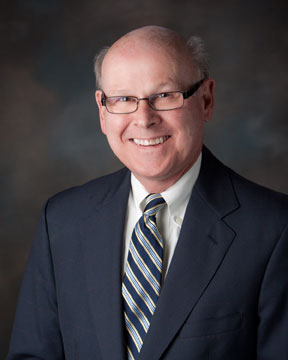
Optometrist For Low Vision In Roanoke VA

Improve blurred vision so you can drive and read again!
Offices located in Harrisonburg, Roanoke, and Wytheville
Low Vision Eye Doctor

People who have lost vision from macular degeneration or other eye diseases are often told that nothing will help them. It is true that there is no cure for these conditions. There are many ways, however, to improve the remaining vision and help the person continue enjoying a full, active, independent life.
For many years I have helped people with impaired vision keep reading, continue driving, use a computer, recognize people's faces, enjoy hobbies and crafts and other activities that are important to them. I have made a commitment to helping my patients see the best that they are capable of.
I understand how macular degeneration and other conditions effect a person's vision and how vision loss can take away someone's independence. The resulting isolation can be devastating.
There are many ways available that I help my patients. By careful evaluation of the remaining vision and by considering their goals I prescribe special glasses or other devices that help them to see better and live a more normal life.
I am passionate about helping people with low vision. That is all that I do in my practice. I'd like to help you. Call me for a complimentary telephone consultation. I will explain the low vision evaluation, discuss fees and answer your questions. Help is available. Call Now for a FREE telephone consultation with Dr. Armstrong!
Conditions Treated
- Macular Degeneration
- Diabetic Retinopathy
- Stargardt's Disease
- Albinism
- Low Vision
- Optic Atrophy
- Rod-Cone Dystrophy
- Macular Hole
- Nystagmus
- Retinitis Pigmentosa
- Glaucoma Treatment
- And More!
Telescopic Glasses
Telescopic glasses are used to help people with impaired vision see distant objects better. They are helpful for people with macular degeneration, diabetic eye disease, glaucoma, Stargardt disease and many other conditions that cause damage to the vision. Many states issue special driver's permits allowing their use for driving. In addition to driving people benefit from telescopic glasses for recognizing peoples faces at a greater distance, watching sporting events or live theater performances. They can also be prescribed for watching television. Telescopic glasses come in various magnifications and designs, each prescribed to meet different needs.
Microscopic Glasses
Microscopic lenses magnify close objects and are often prescribed to help with reading. Magnification can be from 2X to 8X or more depending on the patient's needs. They are designed for maximum image clarity. In addition to reading books they can be helpful for using cellphones or other handheld devices. Some people find that they are able to sew and thread the needle with microscopic glasses.
Electronic Magnification
For people whose remaining vision is not sufficient to get help from microscopic or telescopic glasses electronic magnifiers may be helpful. They are available in both hand held and desk top versions. There are also electronic devices that are worn on the face like glasses. Electronic magnification allows the person to increase or decrease magnification according to their needs. When eyeglass magnification is not appropriate I may prescribe electronic devices like these.
Macular Degeneration
It is a progressive condition affecting the central part of the retina (the macula) and resulting in distortion or loss of central vision. Because it usually occurs in older adults, it is often called age-related macular degeneration. People with macular degeneration experience difficulty with reading, recognizing people's faces, driving and other activities requiring sharp vision. Macular degeneration does not cause total blindness. The peripheral (side) vision is not damaged.
Stargardt's Disease
Stargardt's, is an inherited form of juvenile macular degeneration. It is a progressive condition affecting the macula which is the part of the eye that normally provides the sharpest vision. Symptoms of blurred vision typically develop by age twenty.
Albinism
Albinos often have high amounts of farsightedness, nearsightedness or astigmatism. The vision is not well corrected with eyeglasses or contact lenses. They have varying degrees of impaired vision. It is also common for albinos to have nystagmus, a constant, involuntary movement of the eyes.
Diabetic Retinopathy
Diabetic retinopathy is a condition that occurs in people who have diabetes. It causes progressive damage to the retina, the light-sensitive lining at the back of the eye. Diabetic retinopathy is a serious sight-threatening complication of diabetes.
Request Appointment
Directions
3407 Brambleton Ave., Roanoke, VA 24018


